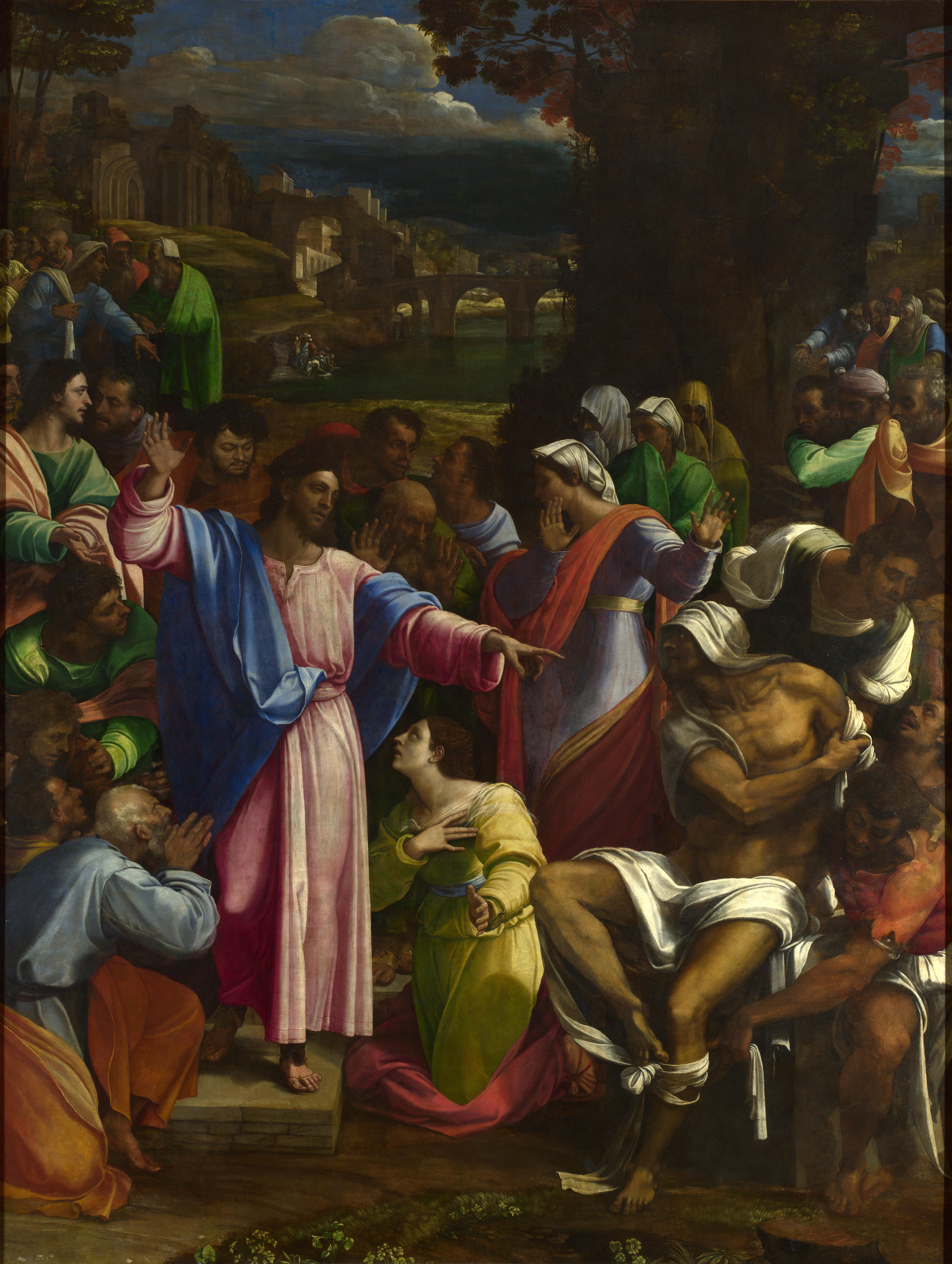From the doorsteps the women stared at passers-by, and laughed. They knew a joke, when it was pointed out to them, but for the most part their entertainment lay in the discernment of physical peculiarities in those around them ... They did not think it was cruel to mock the afflicted, they thought it was perfectly natural; they were sentimental but pitiless, very scathing and unforgiving about any abberation, deviation, eccentricity or piece of originality. There was a spirit abroad in the village that discriminated so thoroughly against pretension that it also discriminated against ambition, even against literacy. (p.14)
Fludd is set in a fictitious village in the north of England, in the 1950s. Hilary Mantel's portrait of village life, blackly comic and quietly mocking, would have hooked me even if the novel had had no plot at all. And it does have plot: I'm still thinking it through.
The novel opens with a description of Sebastiano del Piombo's 'The Raising of Lazarus' (left), which doesn't
seem especially relevant. Then the story itself begins, with the Bishop's visit to Father Angwin, bidding him to remove the saints' statues from the church. (I fear that the priest's household, with the eternally curious housekeeper Agnes Dempsey, reminded me irresistably of
Father Ted. But not in a bad way.) Father Angwin is prone to muttering insults under his breath, but gets away with it: still, the saints have to be removed, and he enlists the help of the villagers to bury them in the churchyard.
Then a visitor arrives: Fludd, a curate whom Father Angwin takes to be the bishop's man. Nevertheless he warms to his visitor, confessing his crisis of faith -- and his belief that McEvoy, the tobacconist in Netherhoughton (the hamlet up the road, where the people have some very odd habits), is the Devil incarnate.
'How did you know him?'
'It was his smile ... his horrible jauntiness ... the little tune he whistled.'
'Anything else?'
'Perhaps the smell of sulphur. It stank out the afternoon.'
'Sulphur,' said Fludd, 'may be taken as definitive.
Quietly and smoothly, without any fuss, things begin to change. (There's a whisper in the back of Agnes' mind, 'and only he could have put it there. I have come to transform you. Transformation is my business.') Even when we're granted Fludd's point of view, we know little more about him or his mission. There are, it must be said, several oddities about Fludd. Father Angwin's whisky bottle never empties when he's drinking with the curate; Fludd, refusing to read Sister Philomena's hand, nevertheless knows a great deal about palmistry; visiting Netherhoughton, he instantly recognises 'the lively signs of alchemy: the black hens scratching in the small back-plots, and the nine-runged ladder, the
scala philosophorum, leaning casually against a wall'; and some of the changes he effects don't seem at all Christian.
The book ends with a description of another painting, Borgognone's 'Virgin and Child': Mantel draws our attention to the 'near-smirk on her dimpled mouth'. And I think that near-smirk stands for the most significant of Fludd's changes; but I am still thinking through the implications and consequences of his time in the village, and his departure. And of the final appearance of McEvoy, the tobacconist ...
I enjoyed this ever so much, though it's really quite a bleak novel: hope and love and rescue, all right, but so little can be saved.


No comments:
Post a Comment